
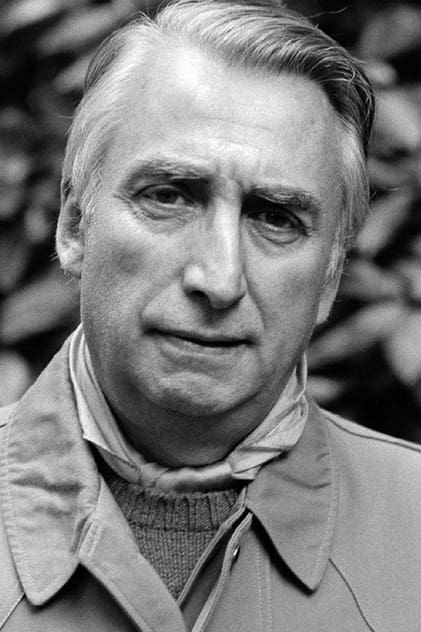
Roland Barthes
Born: November 12, 1915
Died: March 26, 1980
in Cherbourg, Manche, France
Died: March 26, 1980
in Cherbourg, Manche, France
Roland Gérard Barthes (12 November 1915 – 26 March 1980) was a French literary theorist, essayist, philosopher, critic, and semiotician. His work engaged in the analysis of a variety of sign systems, mainly derived from Western popular culture. His ideas explored a diverse range of fields and influenced the development of many schools of theory, including structuralism, anthropology, literary theory, and post-structuralism.
Barthes is perhaps best known for his 1957 essay collection Mythologies, which contained reflections on popular culture, and 1967 essay "The Death of the Author," which critiqued traditional approaches in literary criticism. During his academic career he was primarily associated with the École des Hautes Études en Sciences Sociales (EHESS) and the Collège de France.
Roland Barthes was born on 12 November 1915 in the town of Cherbourg in Normandy. His father, naval officer Louis Barthes, was killed in a battle during World War I in the North Sea before Barthes's first birthday. His mother, Henriette Barthes, and his aunt and grandmother raised him in the village of Urt and the city of Bayonne. In 1924, Barthes' family moved to Paris, though his attachment to his provincial roots would remain strong throughout his life.
Barthes showed great promise as a student and spent the period from 1935 to 1939 at the Sorbonne, where he earned a licence in classical literature. He was plagued by ill health throughout this period, suffering from tuberculosis, which often had to be treated in the isolation of sanatoria. His repeated physical breakdowns disrupted his academic career, affecting his studies and his ability to take qualifying examinations. They also exempted him from military service during World War II.
His life from 1939 to 1948 was largely spent obtaining a licence in grammar and philology, publishing his first papers, taking part in a medical study, and continuing to struggle with his health. He received a diplôme d'études supérieures (roughly equivalent to an MA by thesis) from the University of Paris in 1941 for his work in Greek tragedy.
In 1948, he returned to purely academic work, gaining numerous short-term positions at institutes in France, Romania, and Egypt. During this time, he contributed to the leftist Parisian paper Combat, out of which grew his first full-length work, Writing Degree Zero (1953).
In 1952, Barthes settled at the Centre National de la Recherche Scientifique, where he studied lexicology and sociology. During his seven-year period there, he began to write a popular series of bi-monthly essays for the magazine Les Lettres Nouvelles, in which he dismantled myths of popular culture (gathered in the Mythologies collection that was published in 1957). Consisting of fifty-four short essays, mostly written between 1954 and 1956, Mythologies were acute reflections of French popular culture ranging from an analysis on soap detergents to a dissection of popular wrestling. Knowing little English, Barthes taught at Middlebury College in 1957 and befriended the future English translator of much of his work, Richard Howard, that summer in New York City. ...
Source: Article "Roland Barthes" from Wikipedia in English, licensed under CC-BY-SA 3.0.
Barthes is perhaps best known for his 1957 essay collection Mythologies, which contained reflections on popular culture, and 1967 essay "The Death of the Author," which critiqued traditional approaches in literary criticism. During his academic career he was primarily associated with the École des Hautes Études en Sciences Sociales (EHESS) and the Collège de France.
Roland Barthes was born on 12 November 1915 in the town of Cherbourg in Normandy. His father, naval officer Louis Barthes, was killed in a battle during World War I in the North Sea before Barthes's first birthday. His mother, Henriette Barthes, and his aunt and grandmother raised him in the village of Urt and the city of Bayonne. In 1924, Barthes' family moved to Paris, though his attachment to his provincial roots would remain strong throughout his life.
Barthes showed great promise as a student and spent the period from 1935 to 1939 at the Sorbonne, where he earned a licence in classical literature. He was plagued by ill health throughout this period, suffering from tuberculosis, which often had to be treated in the isolation of sanatoria. His repeated physical breakdowns disrupted his academic career, affecting his studies and his ability to take qualifying examinations. They also exempted him from military service during World War II.
His life from 1939 to 1948 was largely spent obtaining a licence in grammar and philology, publishing his first papers, taking part in a medical study, and continuing to struggle with his health. He received a diplôme d'études supérieures (roughly equivalent to an MA by thesis) from the University of Paris in 1941 for his work in Greek tragedy.
In 1948, he returned to purely academic work, gaining numerous short-term positions at institutes in France, Romania, and Egypt. During this time, he contributed to the leftist Parisian paper Combat, out of which grew his first full-length work, Writing Degree Zero (1953).
In 1952, Barthes settled at the Centre National de la Recherche Scientifique, where he studied lexicology and sociology. During his seven-year period there, he began to write a popular series of bi-monthly essays for the magazine Les Lettres Nouvelles, in which he dismantled myths of popular culture (gathered in the Mythologies collection that was published in 1957). Consisting of fifty-four short essays, mostly written between 1954 and 1956, Mythologies were acute reflections of French popular culture ranging from an analysis on soap detergents to a dissection of popular wrestling. Knowing little English, Barthes taught at Middlebury College in 1957 and befriended the future English translator of much of his work, Richard Howard, that summer in New York City. ...
Source: Article "Roland Barthes" from Wikipedia in English, licensed under CC-BY-SA 3.0.
Movies for Roland Barthes...
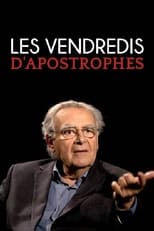
Title: Les vendredis d'Apostrophes
Character: Self (archive footage)
Released: November 6, 2015
Type: Movie
40 years of "Apostrophes". Hours and historical meetings, Pierre Assouline has composed an anthology of the best extracts presented in the form of a primer, which he had commented on by a surprised Bernard Pivot.

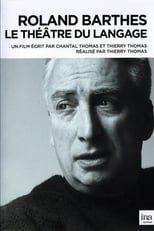
Title: Roland Barthes, 1915-1980: Le théâtre du langage
Character: Self (archive footage)
Released: September 23, 2015
Type: Movie
Most of the time, Roland Barthes is classified in the category of the 1970s intellectuals, where all his fascinating singularity fades. Our movie holds exactly to the desire of making perceptible his singularity. In this purpose, the movie is constituted by an editing of archives, articulated around Barthes presence and the progress of his career. It is thus a kind of a Roland Barthes’s cinematic version by Roland Barthes, a self–portrait that could be resumed by a point of view as accurate as possible.

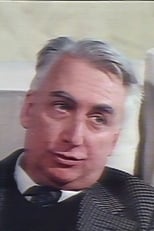
Title: Paris '50 - Existence imagined
Released: January 9, 1981
Type: Movie
An essay film about Jean-Paul Sartre and the French Existentialists, featuring Roland Barthes' last interview.

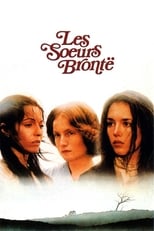
Title: The Bronte Sisters
Character: William Makepeace Thackeray
Released: May 9, 1979
Type: Movie
In a small presbytery in Yorkshire, England, living under the watchful eyes of their aunt and father, a strict Anglican pastor, the Bronte sisters write their first works and quickly become literary sensations.

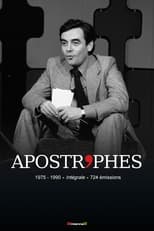
Title: Apostrophes
Character: Self
Released: January 10, 1975
Type: TV
Apostrophes was a live, weekly, literary, prime-time, talk show on French television created and hosted by Bernard Pivot. It ran for fifteen years (724 episodes) from January 10, 1975, to June 22, 1990, and was one of the most watched shows on French television (around 6 million regular viewers). It was broadcast on Friday nights on the channel France 2 (which was called "Antenne 2" from 1975 to 1992). The hourlong show was devoted to books, authors and literature. The format varied between one-on-one interviews with a single author and open discussions between four or five authors.
